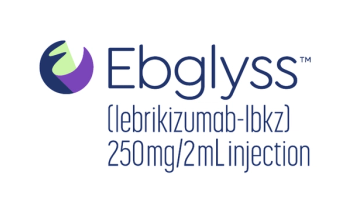
- MHE November 2022
- Volume 32
- Issue 11
EmsanaRx Is Getting Formulary Advice From Cleveland Clinic
‘We’ve been successful, and we’d like to share our success,’ says the chief medical officer of the healthcare system’s employee health plan.
EmsanaRx, one of several upstarts entering the pharmacy benefit management (PBM) industry, is teaming up with Cleveland Clinic, a 21-hospital healthcare system that is in the upper echelon of U.S. healthcare.
EmsanaRx was launched by the Purchaser Business Group on Health (PBGH), a nonprofit organization that comprises almost 40 public entities and large employers, including Apple, Microsoft and Chevron. Collectively, PBGH’s members spend about $350 billion per year on healthcare services for more than 21 million people.
PBGH is the majority owner of EmsanaRx, which was set up as a public benefit corporation, which means that it is legally obliged to pursue public benefit goals, not just the financial interests of shareholders. EmsanaRx has promised to bring transparency and fair dealing to an industry that is often accused of being opaque and driven by profits from rebates from manufacturers.
EmsanaRx intends to work with large, self-funded employers and is beginning to consult with experts at Cleveland Clinic as it selects drugs to include on its formulary. Experts from the healthcare system will “validate the best clinical product at the lowest cost,” says Greg Baker, the CEO of EmsanaRx.
For some drugs, such as prophylaxis for migraines, “the information out there is ambiguous at best,” Baker notes. So instead of trying to make decisions on drugs on its own, EmsanaRx leaders are talking with Cleveland Clinic experts to see which drugs have had the best outcomes. The PBM’s decision on which drugs to cover will depend on advice use from “real-world practitioners,” Baker says. The upstart PBM turned to Cleveland Clinic because it was “looking for a world-class academic medical center with a diverse group of clinicians,” says Baker, noting that the organization’s clinicians deal with everything from cell and gene therapies to mental health conditions.
The partnership will draw upon experience that the healthcare system has had with its own employees, says Bruce Rogen, M.D., M.P.H., chief medical officer of the Cleveland Clinic Employee Health Plan. The clinic’s self-insured health plan has more than 100,000 members. The clinic’s health plan is cost effective, with low out-of-pocket expenses for employees. “Other employers have noticed,” Rogen says. “We’ve been successful, and we’d like to share our success.”
Cleveland Clinic experts are operating to outside consultants for PBM, and the clinic is paid a “fairly modest” amount for its assistance, Rogen says.
In an agreement between the two, Cleveland Clinic will “share internal data in an advisory capacity,” Rogen says. In Baker’s telling, the PBMs that dominate the market focus on profit rather than on the needs of patients or of self-funded employers. He says EmsanaRx will be transparent for its clients, and companies that use the PBM will pay a fixed priced per prescription and a fixed fee to EmsanaRx.
EmsanaRx, which started operation this year, has started serving smaller companies but is bidding on large blocks of business.
Rogen says self-funded employers, even large companies, often struggle with evaluating drugs. By working with EmsanaRx, Cleveland Clinic will share information about the drugs on its formulary and the factors that went into its coverage decisions, he says. With the collaboration, “anytime you share ideas, both sides gain something,” adds Rogen. "High-quality, cost-effective provision of care shouldn’t be something we keep a secret,”
Rogen says.
Articles in this issue
about 3 years ago
Oncologist, Dispense it Thyselfabout 3 years ago
Get a Cancer Gene Test? A Tool for Helping to Decideover 3 years ago
SCAN Tackles Major Disparities in Adherenceover 3 years ago
Personalized Solutions Boost - Medication AdherenceNewsletter
Get the latest industry news, event updates, and more from Managed healthcare Executive.























